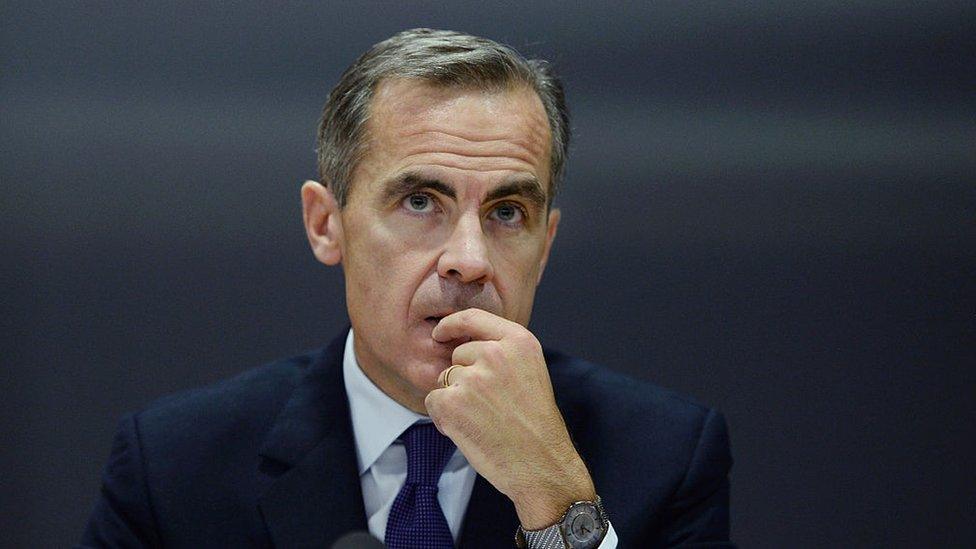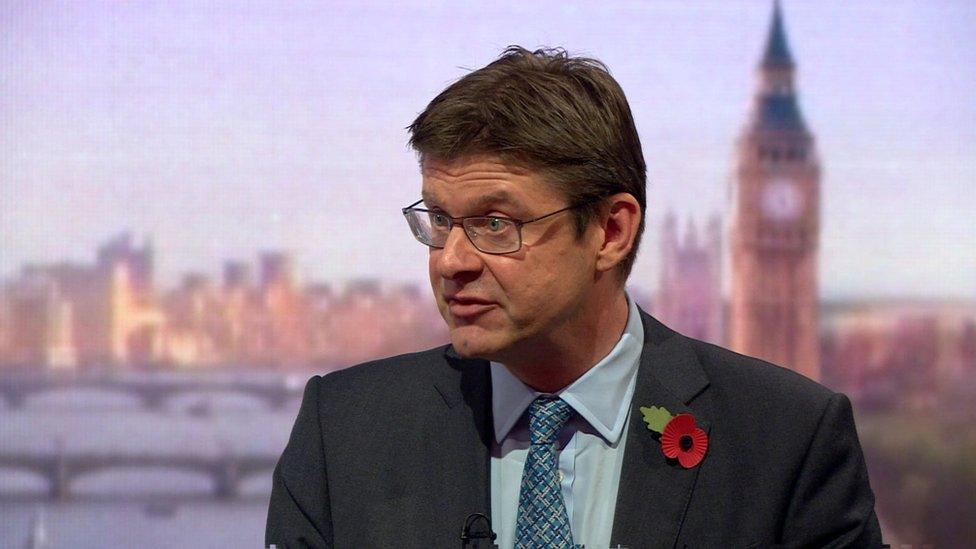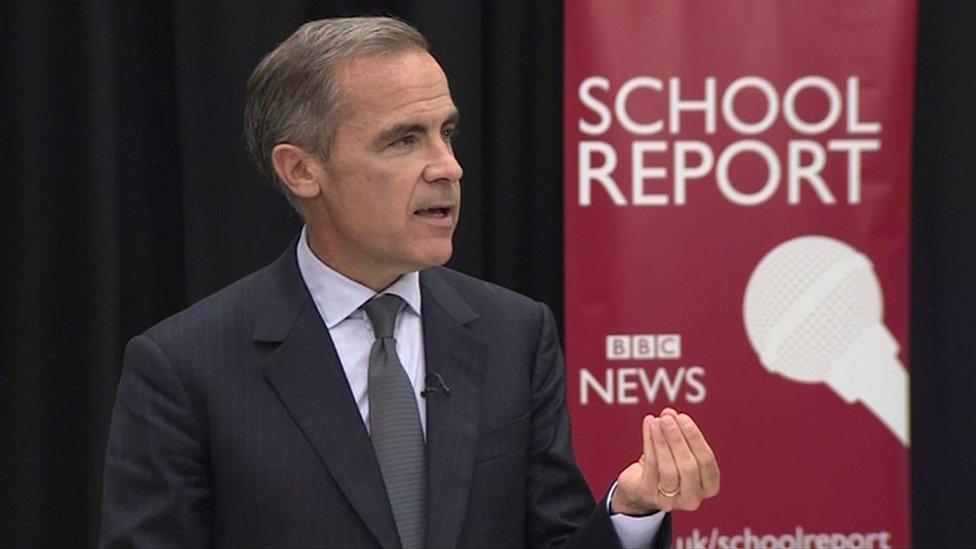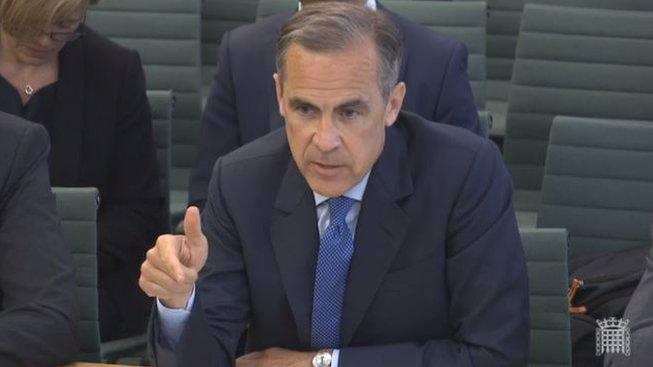Bank says 'nothing has changed' on Mark Carney decision
- Published

The Bank of England says "nothing has changed" following contradictory reports on how long governor Mark Carney will remain at the bank.
"The governor has said he will make his decision public by the end of the year," a spokesman told the BBC.
Mr Carney took over as governor in June 2013 for an eight-year term, but with an option to leave after five years.
The Times reported, external he is likely to quit in 2018, but the FT, external said he is "leaning strongly" towards staying until 2021.
According to the Financial Times, Mr Carney will make an announcement this week "to put an end to damaging speculation".
Some believe the announcement could come on Thursday when Mr Carney will hold a news conference following the publication of the Bank's Quarterly Inflation Report and the announcement of the result of its latest interest rate meeting.

Analysis: Kamal Ahmed, BBC economics editor
Nothing I have heard over the last few weeks - and I have spoken to many people in Mr Carney's inner circle - suggests to me that the Governor wants to leave in 2018.
To announce now that he will go in two years would see power immediately begin draining away.
The markets would also be left with a further layer of uncertainty to contend with.
And the voices of those politicians such as Jacob Rees-Mogg, a member of the Treasury Select Committee, and Lord Lawson, the former chancellor, who think the Governor should resign immediately given his economic warnings before the referendum, would only become louder.
I think Mr Carney would also see it as a personal defeat.
The Governor of the Bank of England, not staying to make Brexit a success, which he says it can be, but walking off the pitch at just the time the markets are calling for economic stability and certainty.

The inflation report includes an assessment of how the economy is performing and its outlook.
Given that the economy has performed well since June, Mr Carney is likely to be asked about his forecast - made before the EU referendum - that a win for the Leave campaign could be damaging for the UK economy.
According to the Financial Times, one of the reasons Mr Carney wants to stay on is to defend the Bank of England's independence against attacks from pro-Brexit campaigners who have argued that the Bank produced deliberately gloomy economic forecasts to support the Remain campaign.
During an appearance before MPs in July he denied that the Bank of England had tried to "frighten" the public by predicting a negative effect from a Brexit vote.

Business Secretary Greg Clark said that Mark Carney had been a "brilliant appointment"
Prime Minister Theresa May has also been critical of the Bank's stimulus scheme for the UK economy - know as quantitative easing, or QE.
In her speech to the Conservative Party conference, she said that under QE, "people with assets had got richer, people without them had suffered".
'Fantastic job'
Many politicians have made it clear they would like Mr Carney to stay on, arguing that it would provide welcome continuity for business and the economy and may help counter any uncertainty caused by the Brexit negotiations.
Speaking to the BBC on Sunday, Business Secretary Greg Clark said: "I think Mark Carney has done a tremendous job, a fantastic job, during his tenure there. It is clearly a decision for him."
Mr Clark was financial secretary to the Treasury when Mr Carney was appointed by the then Chancellor, George Osborne, in November 2012.
"I think it was a brilliant appointment," Mr Clark said.
Former Conservative business minister Anna Soubry has also expressed support for Mr Carney.
"Swift effective measures by Mark Carney mitigated post-EU referendum damage to our economy," she said in a tweet, external.
"Brexiteers should stop undermining Mark Carney; we're fortunate to have someone of his international standing at the helm."

The UK economy has performed well since the June referendum
Writing in The Telegraph, economist Dr Gerard Lyons, a prominent Brexit campaigner, said Mark Carney should stay on as governor, arguing "change at the top of the Bank could be unnecessarily destabilising and provide further fuel to those who want Brexit to fail".
Kathleen Brooks, research director at spread betting firm City Index, said that if Mr Carney did confirm he planned to stay on until 2021 it was likely to benefit the pound, which has fallen around 20% against the dollar since the Brexit vote.
"If this story is true, then it is a beacon of stability during a period of uncertainty for the UK economy, which should benefit the currency and stocks alike," she said.
- Published31 October 2016
- Published16 September 2016

- Published12 July 2016
